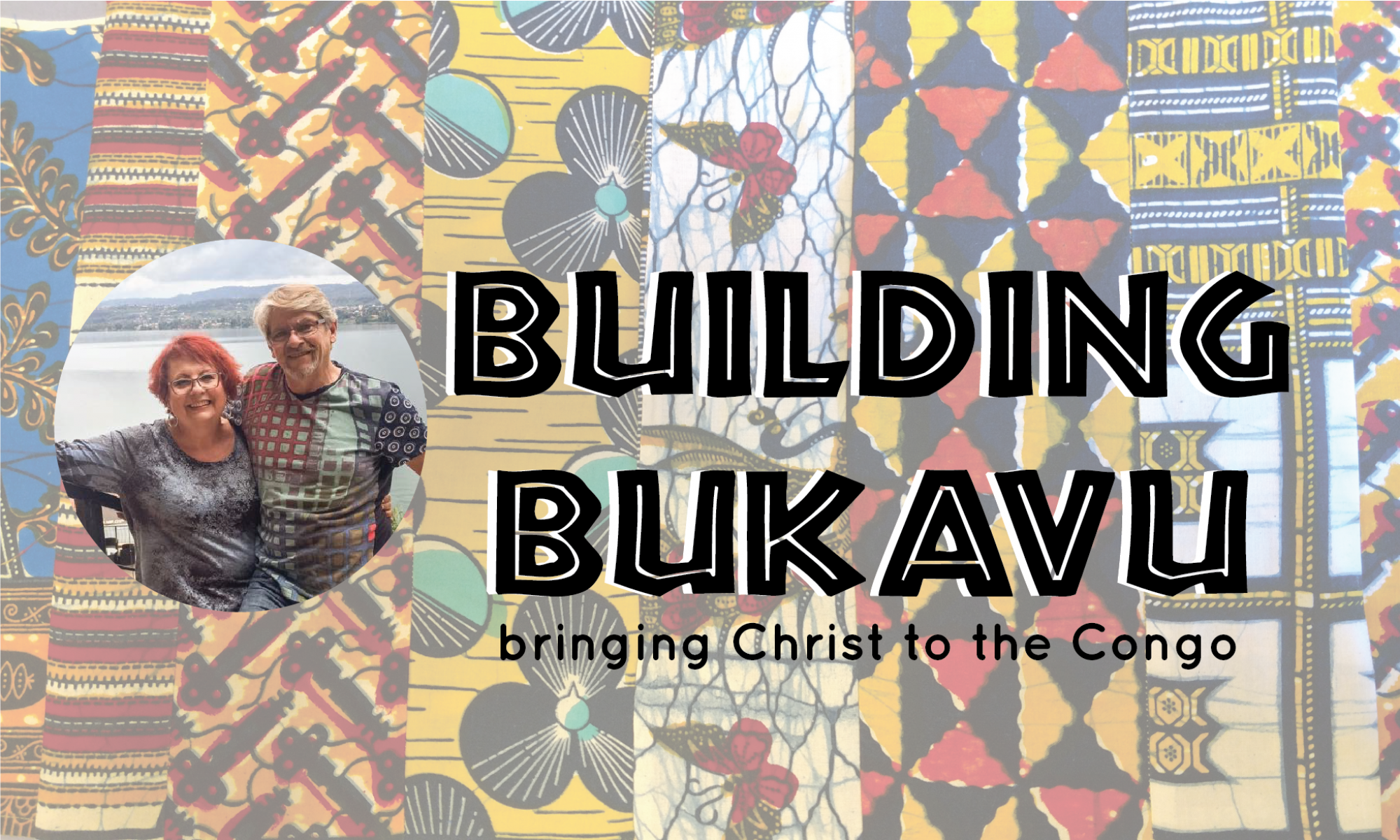
The months following the startling discovery that our daughter Graci’s biological mother was still alive and Graci needed us to go with her to Congo were stressful. However, God continually worked through every issue on our behalf. We discovered that two families from our old mission, people we had worked with and cared for so many years ago, had recently returned to Congo to begin a new work , one with goals and objectives fitting the current needs of the people. They called the new mission Heart For Central Africa.
Brenda Buell and Bob, Dawn, and Elizabeth Baird were once again living in Bukavu. Working for them was a local man who had worked for our mission doing many of the bureaucratic jobs needed to keep expatriates there. “JP,” as he was called, was a tremendous help to us all. He was fluent in several languages, knew how things worked, knew the various offices, customs, and people as well as the needs and peculiarities of we expats.
Reconnecting with this small group was how the trip became a reality. They helped with information and advice, lists of things to bring, where to stay, made reservations, hired vehicles, and more. Truly, they were God’s provision for us.
It was not an easy trip to plan. We had to fly into Kigali, the capital of Rwanda, where we were picked up at the airport and delivered to a guest house. The next day we were driven back to the airport, where we boarded a small plane to Cyangugu, the Rwandan border town located just across the river from Bukavu, Congo, our final goal. From the tiny airport in Cyangugu, we took another pre arranged taxi (Thank you JP!) to the river, had people to help carry our luggage, and crossed the rickety, uncovered, and slick bridge on foot. Yes, I do mean rickety! With holes large enough to fall through, it swayed as we crossed with the river swirling beneath us.
Emotions ran high in all of us that day: Graci, Cathy (my cousin), Ray and myself. The experience was different in each of us. Graci had no recollection of living there, so despite our efforts to equip her, she was not prepared. She remained very quiet, which was unusual for her. Ray and I had mixed emotions: euphoria as our dream of returning materialized was interspersed with dismay at the conditions of the town.
As we stepped off the bridge into the inevitable mud, trash and people were everywhere. Barefoot women in traditional clothing were literally bent double with the weight of enormous bags of flour or rice or cardboard boxes the size of a Volkswagen Beetle on their backs. Legless men on small, wheeled boards begged in the streets. Ragged children looked for handouts. We stood in an outdoor line, in a drizzle, waiting to have our passports examined and stamped, and our luggage pawed through. Yes, we were back! Yet in spite of the dismal weather and the sad conditions of the locals, Ray and I felt extraordinarily happy.
Our old friend JP was there at the border, where he helped us into his vehicle. Leaving the melee behind, we traveled a short distance on the hard-packed, deeply rutted roads to the house the present missionaries lived in—the very house we first lived in when we arrived in Zaire all those years ago! It was as if time had stood still. To our great surprise, there, standing in a long line snaking across the front of the brick wall that surrounded that house, was a large group of people, all waiting for us!
There were friends, people we had known and worked with, some with grown-up children, all waiting to greet us! It was an amazing surprise, and I had to blink back tears. Some had traveled on foot from miles away! It was a humbling moment, to be sure. They were delighted to learn that the beautiful young black woman with us was a very grown-up Neema, our Graci. There were warm handshakes, and laughter filled the air, with everyone talking at once as we struggled to understand and speak the Swahili we had once learned.
But always in our minds was the true reason we had come: to reunite Graci with the woman who had given her birth. How would Graci feel? Where would we meet, and what would they say to each other. Who would be there to interpret? In fact, how would I feel? Underneath all that lay something else, known only to Ray and myself, the question: Could we be used again here, at our age? Or would this bring finality and closure to our years in Congo?
